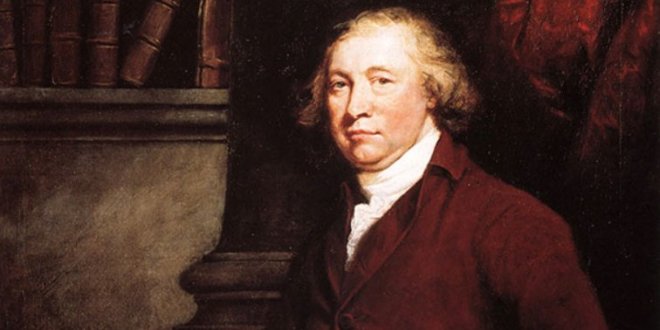
Edmund Burke
Biography
Edmund Burke (1729-1797) is, recognized as one of the masters of English prose. Burke shares with Gibbon the place of the greatest prose stylist of the period now under review.
Born in Dublin, Burke was educated at Trinity College, Dublin, and then removed to London to study law in the Middle Temple. He soon showed that his real bent lay toward politics and literature, and it was not long before he published some books that attracted a good deal of attention and admitted him into the famous Johnson Club. In politics he attached himself to the Whig party, obtained some small appointments, and became member for Wendover (1765). In 1774 the citizens of Bristol invited him to represent them as their Member of Parliament. Though his support of Catholic emancipation and of free trade with Ireland cost him his seat six years later, a statue which stands in Bristo records to this day the city’s pride in the connexion. Both as an orator and as a pamphleteer he was a powerful advocate for his party, and very soon his splendid gifts won for him a leading place in the House of Commons.
Burke’s style of oratory, often laboured, rhetorical, and theatrical, exposed him to much censure and ridicule, and his speeches were frequently prolonged to the point of dullness. But at its best his eloquence was powerful in attack and magnificent in appeal, rising to the very summit of the orator’s art. When the Whigs attained to office in 1782 Burke was appointed Paymaster of the Forces. He was leader in the prosecution of Warren Hastings, making a speech of immense length and power (1788). On the outbreak of the French. Revolution in 1789 he left his party and attacked the revolutionaries with all his great energy. In 1794, broken in health, he retired from Parliament, but continued to publish pamphlets till his death in 1797.
